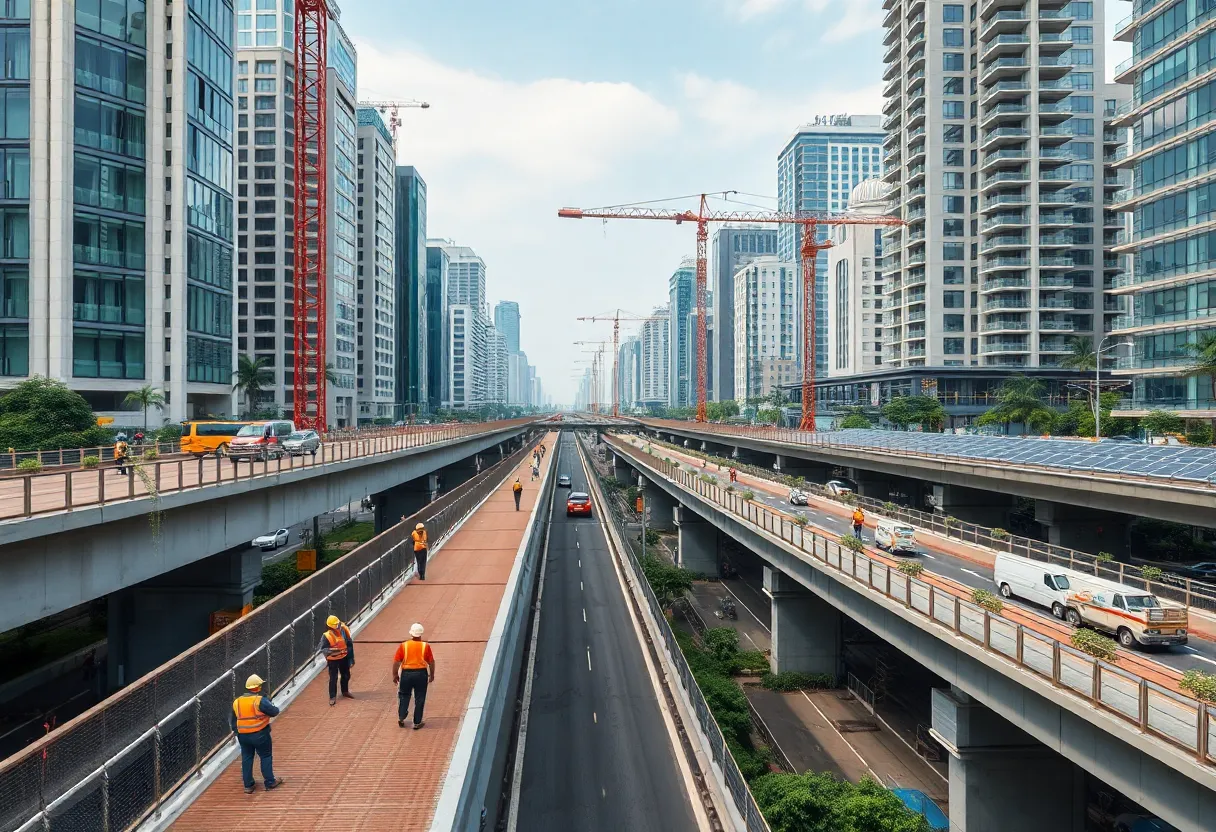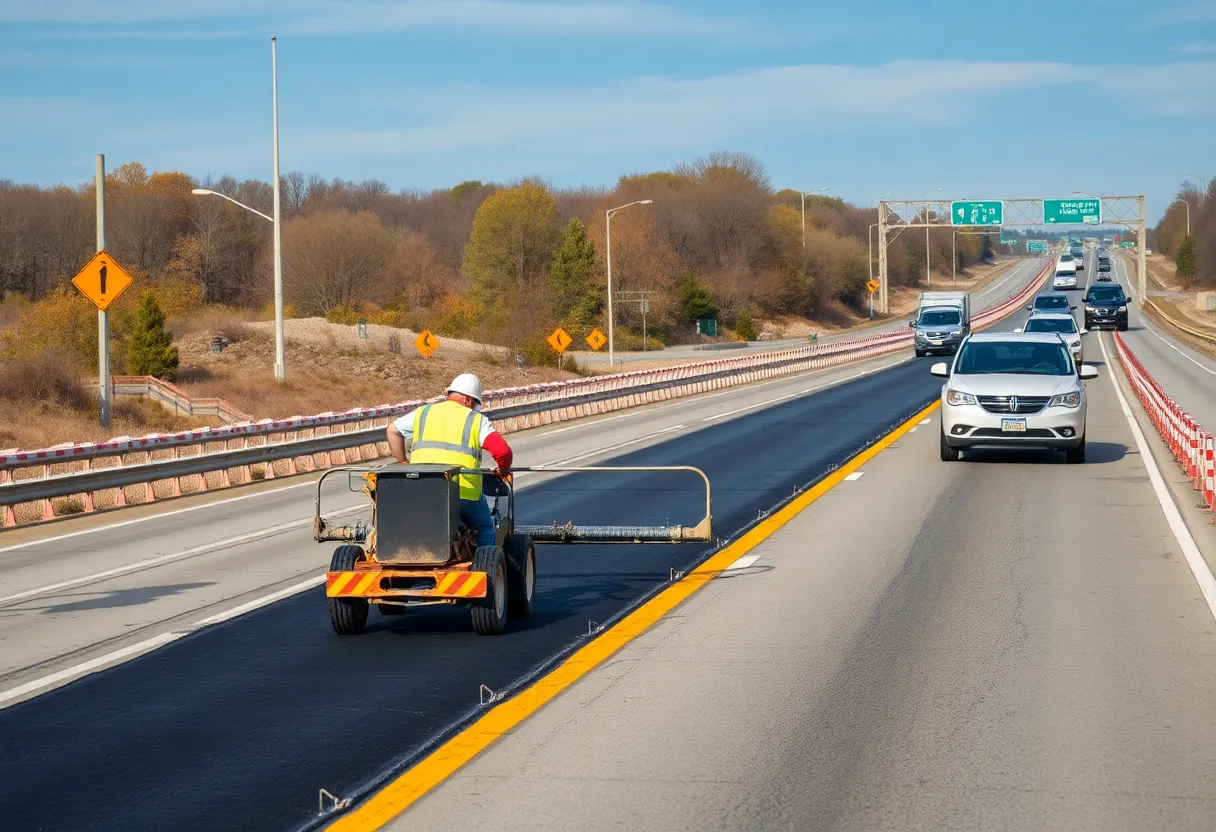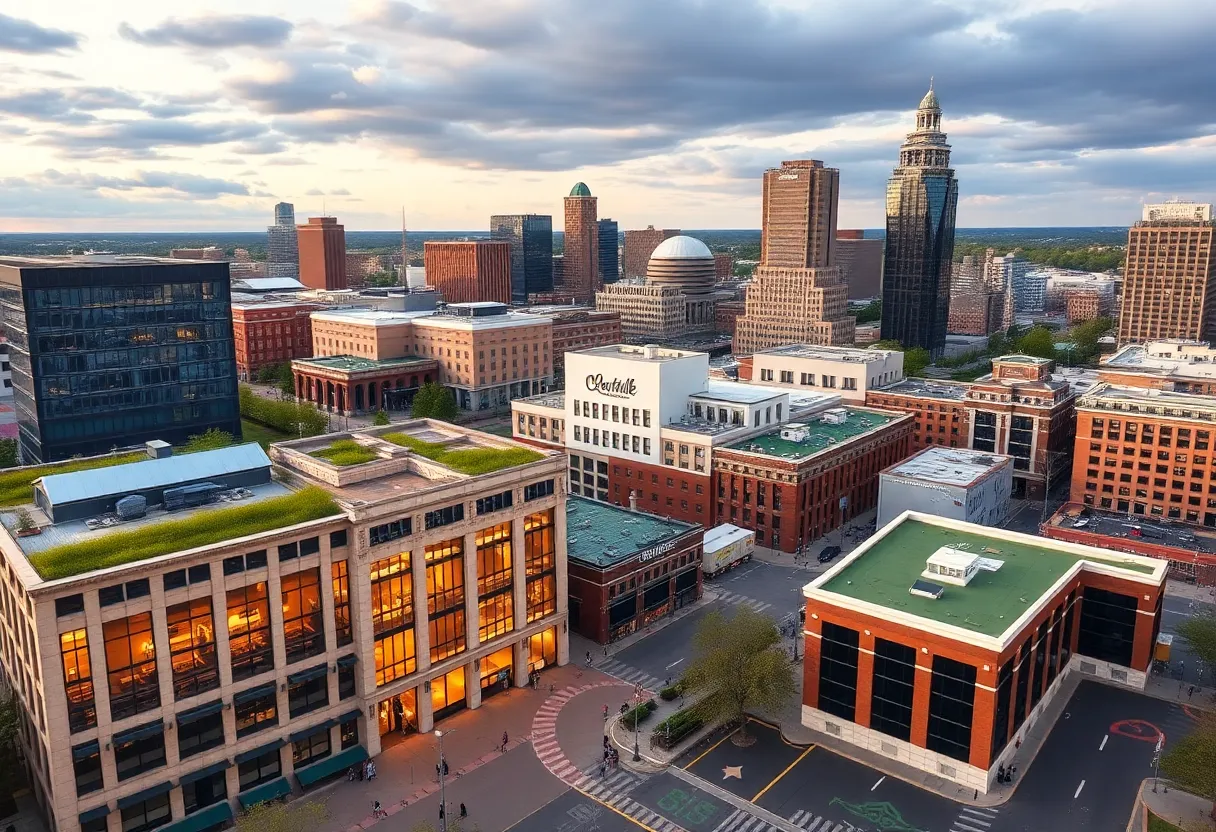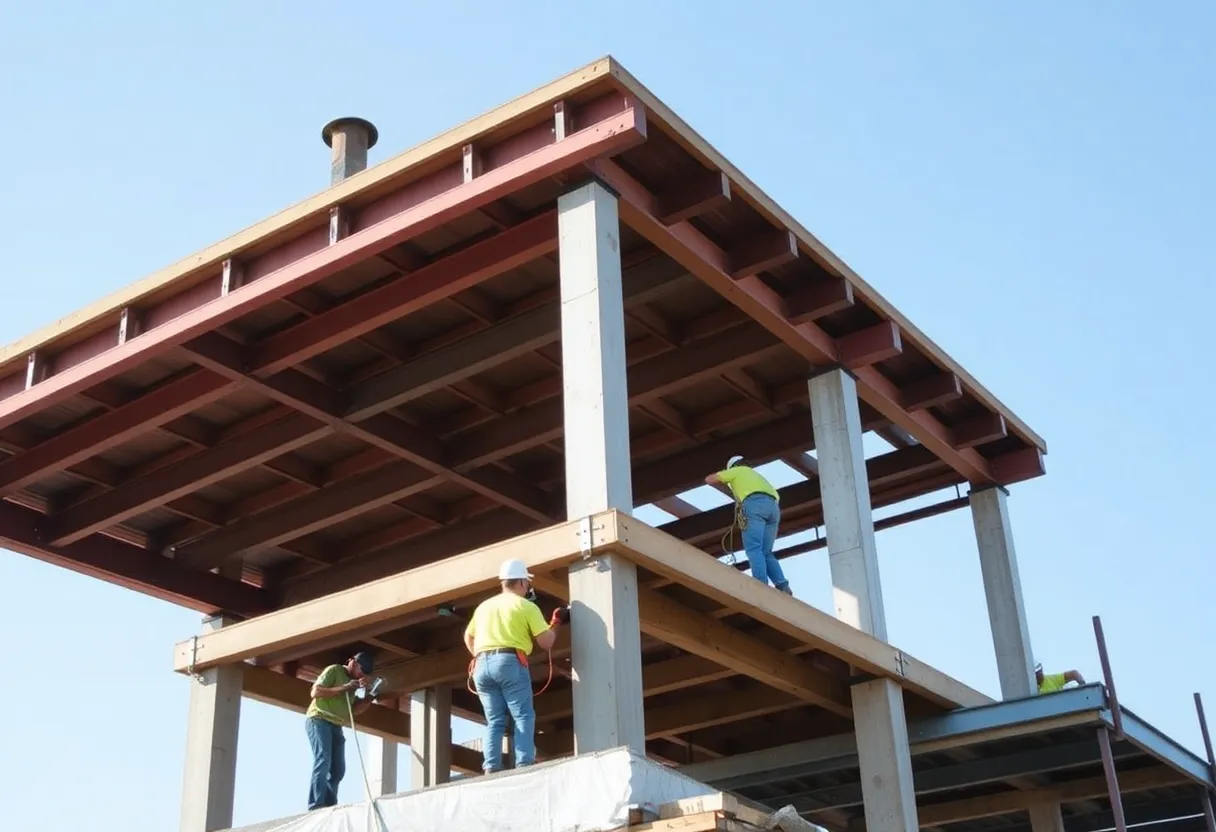News Summary
A significant $500 million infrastructure project has commenced in downtown Atlanta, aiming to modernize roads and bridges. Led by EMCOR Group with a workforce of over 1,200, the initiative includes sustainable features like solar panels and rainwater harvesting. Completion is expected by 2028, bringing anticipated economic boosts and improved urban mobility. Local businesses prepare for temporary traffic disruptions but hope to benefit from increased foot traffic post-renovation.
Atlanta, Georgia Launches Major Downtown Infrastructure Renovation
In Atlanta, Georgia, a significant infrastructure project began today to overhaul the downtown core. This $500 million effort, supported by federal grants, focuses on updating outdated bridges and roads to enhance safety and efficiency. The initiative is led by EMCOR Group, which has assembled a team of over 1,200 workers to execute the work. Officials project the project will conclude by 2028, with expectations that it will stimulate the local economy through job creation and improved connectivity.
Key aspects of the project include modernizing critical transportation structures, such as bridges and roads, to meet current standards. EMCOR Group is overseeing the operations, ensuring that the work stays on schedule despite potential challenges. The effort incorporates sustainable elements, such as partnerships with technology companies to use eco-friendly building materials, which aim to reduce environmental impact and promote long-term resilience.
Despite concerns about rising inflation, project bids remained within the allocated budget, allowing for smooth progression. Environmental groups have highlighted positive features like the integration of solar panels and rainwater harvesting systems, which are designed to make the infrastructure more energy-efficient and environmentally responsible. Additionally, the plans include the addition of bike lanes and pedestrian pathways, encouraging greener transportation options in the area.
To manage disruptions, traffic detours are scheduled to begin on Fulton Street in November. Local businesses are preparing for short-term inconveniences, such as reduced access, but they anticipate benefits including increased foot traffic and higher property values once the project is complete. This comprehensive approach is expected to transform the city’s skyline and improve overall urban mobility.
Background and Context
The need for this renovation stems from the aging state of Atlanta’s downtown infrastructure, which has struggled to handle growing traffic and population demands. Over the years, these structures have required updates to prevent deterioration and support economic growth. The project represents a major investment in the city’s future, drawing on federal funding to address these long-standing issues. By focusing on modernization, the initiative aligns with broader trends in urban development, emphasizing sustainability and community benefits. Local leaders have emphasized the project’s role in fostering economic boosts, with potential for enhanced business opportunities and improved quality of life for residents.
Construction activities will involve detailed planning to minimize impacts on daily life, including coordinated detours and phased work schedules. The inclusion of green technologies reflects a growing commitment to environmental stewardship in public projects. As the work progresses, it is poised to set a standard for similar efforts across the region, demonstrating how infrastructure improvements can drive positive change.
Overall, this project marks a pivotal step in Atlanta’s development, combining economic, environmental, and community-focused elements. It underscores the importance of proactive infrastructure investment in maintaining a vibrant urban environment.
To provide more context, the $500 million budget covers not only the core renovations but also contingency plans for unexpected delays, ensuring that the project stays on track for its 2028 completion. This funding strategy, backed by federal grants, highlights a collaborative approach between local and national entities to address urban challenges. The employment of over 1,200 workers will inject vitality into the local job market, offering opportunities in various skilled trades and supporting ancillary businesses. Furthermore, the sustainable features, such as solar panels and rainwater harvesting, are projected to reduce operational costs and carbon footprints, aligning with global efforts to combat climate change. Local stakeholders have noted that these enhancements could serve as a model for future projects, promoting eco-friendly practices in construction. The anticipated economic boost includes not only immediate job creation but also long-term increases in tourism and commercial activity, as improved infrastructure makes the downtown area more accessible and appealing.
In summary, this initiative in Atlanta represents a forward-thinking response to the demands of modern urban living, balancing immediate needs with sustainable development goals. By addressing aging infrastructure, the project aims to create a more resilient and efficient city core.
FAQ Section
- Q1: What is the main focus of the infrastructure project in Atlanta, Georgia?
- Q2: How much is the project budgeted for?
- Q3: Which company is leading the effort?
- Q4: When is the project expected to be completed?
- Q5: What sustainable features are included?
- Q6: Are there any planned traffic changes?
- Q7: What additional elements are part of the project?
- Q8: How are local businesses affected?
A1: The project focuses on renovating the city’s downtown core by modernizing aging bridges and roads.
A2: The project is budgeted at $500 million, funded by federal grants.
A3: EMCOR Group is leading the effort, employing over 1,200 workers.
A4: Analysts expect completion by 2028, boosting the local economy.
A5: The project includes green features like solar panels and rainwater harvesting, with partnerships for sustainable building materials.
A6: Traffic detours are planned for Fulton Street starting November.
A7: The project also includes bike lanes and pedestrian pathways to promote eco-friendly transport.
A8: Local businesses are preparing for temporary disruptions but anticipate long-term gains in foot traffic and property values.
Key Features Chart
| Feature | Description |
|---|---|
| Budget | $500 million, funded by federal grants |
| Lead Company | EMCOR Group |
| Workers Employed | Over 1,200 |
| Completion Date | By 2028 |
| Sustainable Elements | Solar panels and rainwater harvesting |
| Traffic Impacts | Detours on Fulton Street starting November |
| Additional Infrastructure | Bike lanes and pedestrian pathways |
| Economic Impact | Boost to local economy with long-term gains for businesses |





